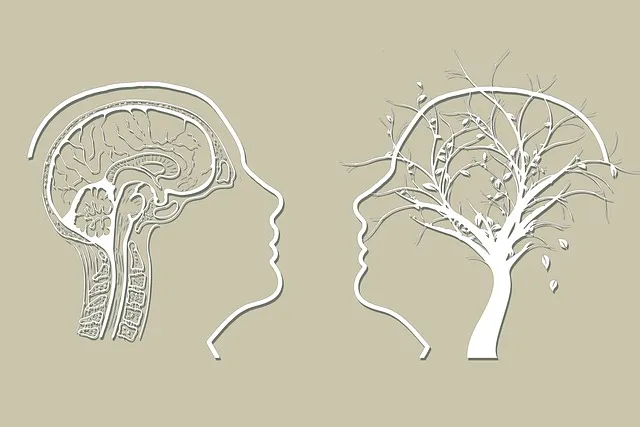Kaiser Permanente Mental Health Longmont offers a comprehensive, trauma-informed approach to support individuals affected by events like accidents or violence. They educate patients on mental health, promote self-care, and provide specialized services tailored to diverse needs. Through outreach programs, they connect vulnerable populations with resources, fostering recovery and better coping mechanisms. Their model prioritizes patient safety, emotional intelligence, and evidence-based practices, addressing historical and intergenerational trauma while offering integrated therapy, group sessions, and stress reduction techniques for holistic care.
Trauma can have profound and lasting effects on individuals, making accessible and effective support services crucial. This article delves into the importance of trauma support, highlighting key strategies and successful models like Kaiser Permanente Mental Health Longmont’s trauma-informed approach. We explore fundamental components for effective trauma care, emphasizing accessible care to ensure support reaches all community members. Understanding trauma and its impact serves as a foundation for improving mental health services, fostering resilient communities.
- Understanding Trauma and Its Impact: A Foundation for Support Services
- Kaiser Permanente Mental Health Longmont: An Overview of Their Trauma-Informed Approach
- Key Components of Effective Trauma Support Services
- Accessible Care: Ensuring Trauma Support is Reachable for All Individuals in the Community
Understanding Trauma and Its Impact: A Foundation for Support Services

Trauma is a profound and complex experience that can leave lasting effects on an individual’s mental health and overall well-being. It’s crucial to understand trauma as a fundamental step in developing effective support services. At Kaiser Permanente mental health Longmont, we recognize that trauma can manifest from various experiences, including but not limited to, accidents, violence, or life-threatening events. These traumatic incidents can trigger intense emotional responses and disrupt one’s ability to cope with daily life.
A strong foundation for trauma support services lies in educating individuals about mental health and promoting self-care routines designed to foster resilience. Mental Health Education Programs aim to empower people by providing knowledge and skills to navigate their mental health journeys. Additionally, implementing Community Outreach Programs can help connect vulnerable populations with much-needed resources. By combining these strategies with a focus on individual healing, organizations like Kaiser Permanente strive to create a supportive environment where individuals can begin their path to recovery and develop better coping mechanisms for the future.
Kaiser Permanente Mental Health Longmont: An Overview of Their Trauma-Informed Approach

Kaiser Permanente Mental Health Longmont stands out for its trauma-informed approach, prioritizing patient safety and healing. This model is deeply rooted in understanding that traumatic experiences can significantly impact mental health, and effective treatment requires a nuanced, empathetic response. Their services are designed to create a secure environment, fostering trust and encouraging individuals to share their stories without fear of judgment.
The center incorporates the latest research on trauma-informed care, including risk assessment tools for mental health professionals. They also offer specialized training in cultural competency for healthcare providers, ensuring that staff are equipped to support a diverse range of clients. Emotional intelligence is at the heart of their practice, allowing practitioners to connect with patients on a deeper level and provide tailored interventions that address both the symptoms and underlying causes of trauma.
Key Components of Effective Trauma Support Services

Effective trauma support services are multifaceted, aiming to provide comprehensive care for individuals navigating the aftermath of traumatic events. A key component is creating a safe and supportive environment where survivors feel empowered to share their experiences. This involves trained professionals who possess cultural sensitivity and employ evidence-based practices tailored to each client’s unique needs. The integration of various therapy modalities, such as cognitive behavioral therapy (CBT) and eye movement desensitization and reprocessing (EMDR), can significantly aid in processing trauma memories and reducing symptoms of anxiety and depression.
Additionally, these services should offer a range of support beyond individual therapy, including group sessions that foster community and peer support. Encouraging clients to participate in stress reduction methods and burnout prevention strategies, like mindfulness practices or stress management workshops, empowers them to take an active role in their healing journey. Longmont’s Kaiser Permanente mental health services exemplify this holistic approach by combining specialized trauma care with initiatives aimed at depression prevention and promoting overall well-being.
Accessible Care: Ensuring Trauma Support is Reachable for All Individuals in the Community

Trauma support services must be accessible to all individuals within a community, ensuring that no one faces barriers when seeking help for their mental health. Kaiser Permanente Longmont recognizes this critical need and strives to provide comprehensive care that caters to diverse populations. By offering a range of trauma-informed services, they aim to reach individuals who may have faced historical or intergenerational traumas, often overlooked in mainstream mental health practices.
This accessibility involves implementing compassionate cultivation practices, such as mindfulness and empathy training, to prevent burnout among support staff while fostering a safe and nurturing environment for clients. Additionally, addressing underlying issues like depression prevention is integral to the holistic approach, ensuring that trauma survivors receive the comprehensive care they deserve within their community.
Trauma support services play a pivotal role in healing and resilience, as evidenced by the successful models implemented by organizations like Kaiser Permanente Mental Health Longmont. By integrating trauma-informed approaches, these services become accessible and effective for all individuals within the community, addressing a crucial aspect of mental health care. Understanding trauma and its impact is fundamental to developing comprehensive support systems that can transform lives and foster a healthier, more supportive society.






